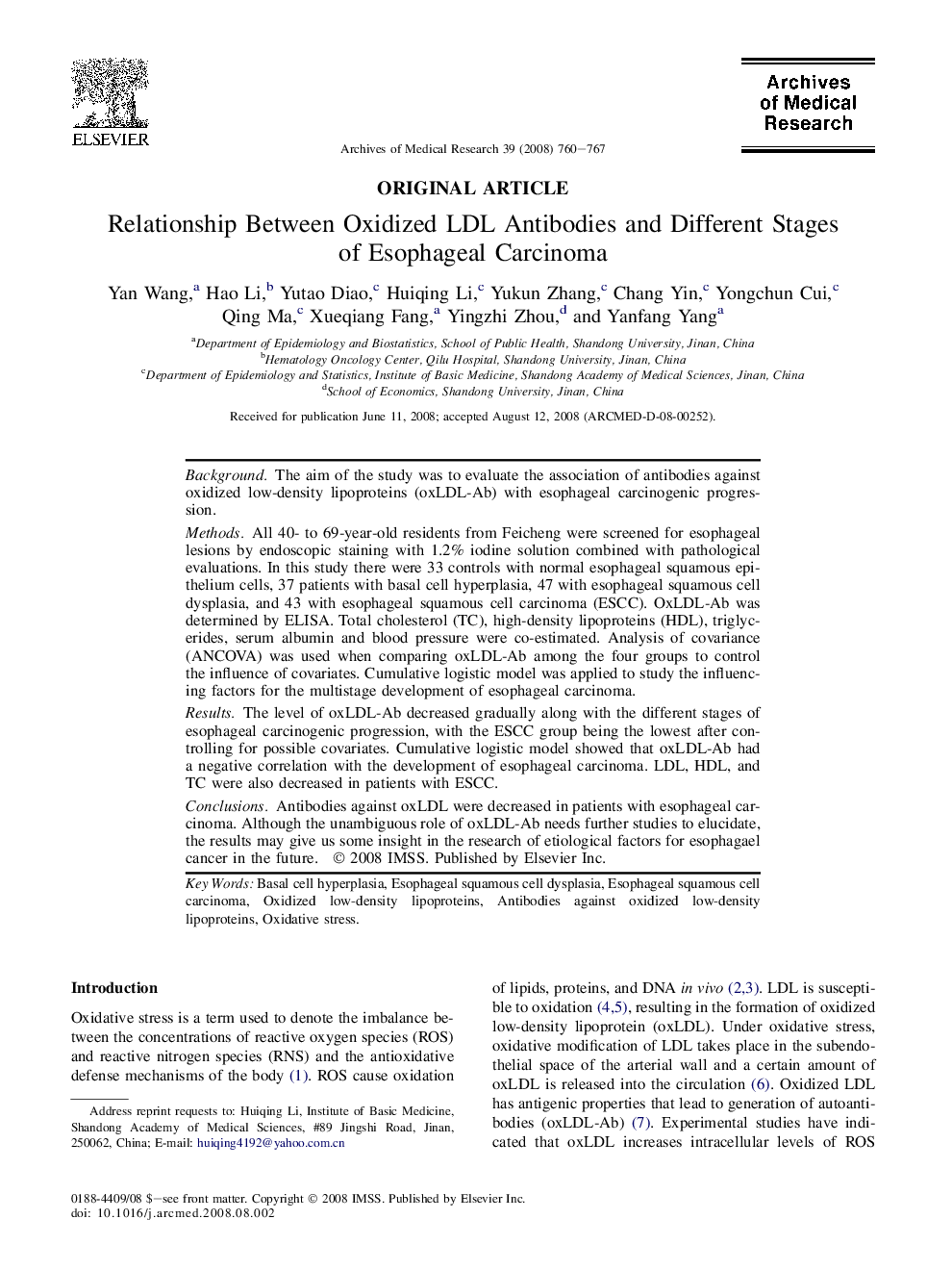| Article ID | Journal | Published Year | Pages | File Type |
|---|---|---|---|---|
| 3447720 | Archives of Medical Research | 2008 | 8 Pages |
BackgroundThe aim of the study was to evaluate the association of antibodies against oxidized low-density lipoproteins (oxLDL-Ab) with esophageal carcinogenic progression.MethodsAll 40- to 69-year-old residents from Feicheng were screened for esophageal lesions by endoscopic staining with 1.2% iodine solution combined with pathological evaluations. In this study there were 33 controls with normal esophageal squamous epithelium cells, 37 patients with basal cell hyperplasia, 47 with esophageal squamous cell dysplasia, and 43 with esophageal squamous cell carcinoma (ESCC). OxLDL-Ab was determined by ELISA. Total cholesterol (TC), high-density lipoproteins (HDL), triglycerides, serum albumin and blood pressure were co-estimated. Analysis of covariance (ANCOVA) was used when comparing oxLDL-Ab among the four groups to control the influence of covariates. Cumulative logistic model was applied to study the influencing factors for the multistage development of esophageal carcinoma.ResultsThe level of oxLDL-Ab decreased gradually along with the different stages of esophageal carcinogenic progression, with the ESCC group being the lowest after controlling for possible covariates. Cumulative logistic model showed that oxLDL-Ab had a negative correlation with the development of esophageal carcinoma. LDL, HDL, and TC were also decreased in patients with ESCC.ConclusionsAntibodies against oxLDL were decreased in patients with esophageal carcinoma. Although the unambiguous role of oxLDL-Ab needs further studies to elucidate, the results may give us some insight in the research of etiological factors for esophagael cancer in the future.
